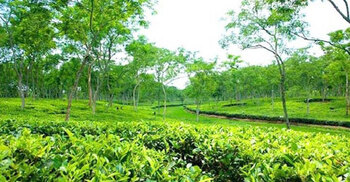Here’s why Indian Tea is being rejected by global buyers

Indian tea makers' opportunity to ramp up exports on the back of falling produce by crisis-hit Sri Lanka has hit a roadblock with consignments beings rejected due to presence of pesticides and chemicals beyond permissible limits. However, the tea producers maintain that the maximum residue level (MRL) of chemicals in tea should be maintained at current levels and in a few cases to be raised.
Traders have rejected several tea consignment from April to mid-May as the MRL in them was found to be higher than the limits set by the Food Safety and Standards Authority of India (FSSAI) when tested in an independent laboratory.
All teas sold in the country must conform to the Food Safety and Standards Authority of India (FSSAI) norms. However, most of the buyers are purchasing tea that have unusually high chemical content.
In 2021, India exported 195.90 million kg tea. The major buyers were Commonwealth of Independent States (CIS) nations and Iran. The board is aiming to achieve 300 million kg tea this year. Many countries are following strict entry regulations for tea. Most of the countries follow variations of the EU standards, which are more stringent than the FSSAI rules.
"Instead of complying with the law, many are urging the government to make the FSSAI norms more liberal," he said, adding that this would send a wrong signal as the beverage is considered to be a health drink.
A senior official of Tea Board told PTI that complaints have been received from tea packers and exporters on the issue.
"It is reiterated that producers should strictly abide by the extant FSSAI norms. The issue of modification of the norms has been raised by the producers' organisations with FSSAI. It is obvious that exports should adhere to the existing norms of the importing countries," he said.
India exported tea worth ₹5,246.89 crore in 2021.
Source: LiveMint







